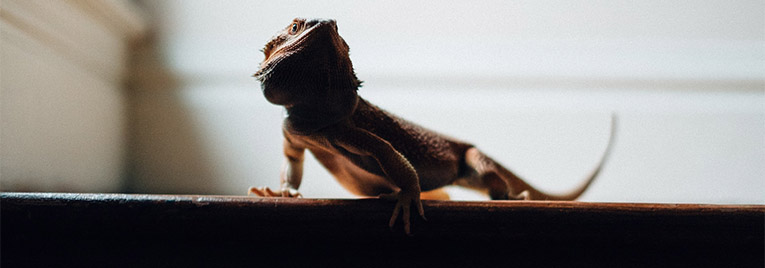Zzz… Your Guide to Bearded Dragon Sleep
5th Oct 2022

Understanding Your Bearded Dragon’s Sleep Habits and Needs
Congratulations! You brought home a baby bearded dragon. Now, much like you would a newborn baby, you will be obsessing over their sleep. Are they getting enough sleep? How can you tell if they are comfortable at night? What can you do to ensure a restful night of sleep?
Let’s dive into everything related to bearded dragon sleep.
Bearded dragons: They are just like us.
Beardies are diurnal, meaning they sleep at night and are awake during the day. Unless your work hours demand otherwise, you likely follow this sleep schedule. It is very important for bearded dragons to get 8–12 hours of regular sleep to maintain their health and grow strong. And, just like humans, bearded dragons need to tell their body that it is time to rest. Because they can’t exactly set an alarm on their phone, you can signal when it is time for them to sleep and wake by turning on and off their heat lamp at the same time every day. Also, make sure their enclosure is dark.
Bearded dragons should not be sleeping a lot during the day.
Unless your dragon is brumating, be mindful of any dragon that is sleeping a lot while their heat lamp is on. This could signal a health issue like impaction, dehydration, general discomfort with their enclosure, or a problem with their diet. In particular, bearded dragons should not be sleeping immediately after eating: They should be basking. If they are not, make sure you are providing an adequate and comfortable space for basking at a temperature between 95°F and 100°F.
Bearded dragons can sleep in different positions.
A dragon’s favorite sleeping position is usually with their stomach resting on the ground or against an object and their legs splayed out. This stance is common in the wild as it allows them to quickly get up and respond to a predator. Contrary to popular belief, your dragon does not sleep standing up: They may lean against the glass of their enclosure. Bearded dragons also do not sleep with their eyes open. If their eyes are open when they would normally be sleeping, they may have been awakened by a disruption in their environment, like a noise or a light.
Pro–tip: Good nutrition promotes healthy sleep.
Count on ABDragons for all of your high–quality feeder insect needs, from Dubia roaches to mealworms and hornworms. And, if you have questions or concerns about bearded dragon sleep, please feel free to reach out to our team. We’re here to help!



